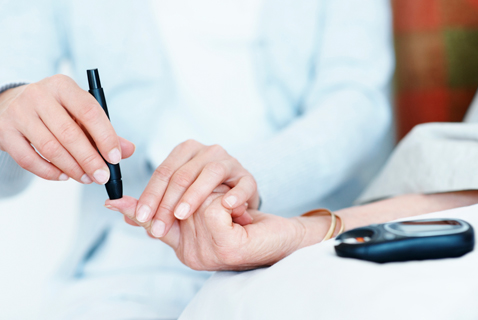- Home
- Medical news & Guidelines
- Anesthesiology
- Cardiology and CTVS
- Critical Care
- Dentistry
- Dermatology
- Diabetes and Endocrinology
- ENT
- Gastroenterology
- Medicine
- Nephrology
- Neurology
- Obstretics-Gynaecology
- Oncology
- Ophthalmology
- Orthopaedics
- Pediatrics-Neonatology
- Psychiatry
- Pulmonology
- Radiology
- Surgery
- Urology
- Laboratory Medicine
- Diet
- Nursing
- Paramedical
- Physiotherapy
- Health news
- Fact Check
- Bone Health Fact Check
- Brain Health Fact Check
- Cancer Related Fact Check
- Child Care Fact Check
- Dental and oral health fact check
- Diabetes and metabolic health fact check
- Diet and Nutrition Fact Check
- Eye and ENT Care Fact Check
- Fitness fact check
- Gut health fact check
- Heart health fact check
- Kidney health fact check
- Medical education fact check
- Men's health fact check
- Respiratory fact check
- Skin and hair care fact check
- Vaccine and Immunization fact check
- Women's health fact check
- AYUSH
- State News
- Andaman and Nicobar Islands
- Andhra Pradesh
- Arunachal Pradesh
- Assam
- Bihar
- Chandigarh
- Chattisgarh
- Dadra and Nagar Haveli
- Daman and Diu
- Delhi
- Goa
- Gujarat
- Haryana
- Himachal Pradesh
- Jammu & Kashmir
- Jharkhand
- Karnataka
- Kerala
- Ladakh
- Lakshadweep
- Madhya Pradesh
- Maharashtra
- Manipur
- Meghalaya
- Mizoram
- Nagaland
- Odisha
- Puducherry
- Punjab
- Rajasthan
- Sikkim
- Tamil Nadu
- Telangana
- Tripura
- Uttar Pradesh
- Uttrakhand
- West Bengal
- Medical Education
- Industry
New test to measure if a person is pre-diabetic

New York: Researchers have discovered a panel of unsaturated fatty acid markers in blood that could lead to a simple test to warn people years before the onset of diabetes.
The findings could ultimately many people to make necessary lifestyle changes to avoid the chronic disease.
"Currently there are no clinical tests that tell you the likelihood of developing diabetes," said one of the researchers Wei Jia from University of Hawaii Cancer Centre in the US.
"To know if you are likely to get diabetes in a few years is an important discovery. People can hopefully get tested for the disease during physical exams in the future," Jia noted.
The markers through a blood sample test may help predict the risk of developing pre-diabetes and metabolic syndrome, which is a group of conditions including elevated blood pressure, insulin resistance and high glucose level, the study noted.
"It is conventionally assumed that if people are obese they are at risk of being pre-diabetic. However, sometimes people who are obese can still be healthy. If people know they are specifically pre-diabetic they can have a more targeted way of treating it," Jia said.
The research team conducted a metabolomics study on four independent cohorts that involved a total of 452 participants.
The team performed a cross-sectional study with metabolically healthy and unhealthy obese participants, a longitudinal study to observe the occurrence of developing pre-diabetes over as long as 10 years, and two studies to evaluate the therapeutic effects on participants who underwent metabolic surgery or received very low carbohydrate diet for eight weeks.
The study was published online in the journal EbioMedicine.
The findings could ultimately many people to make necessary lifestyle changes to avoid the chronic disease.
"Currently there are no clinical tests that tell you the likelihood of developing diabetes," said one of the researchers Wei Jia from University of Hawaii Cancer Centre in the US.
"To know if you are likely to get diabetes in a few years is an important discovery. People can hopefully get tested for the disease during physical exams in the future," Jia noted.
The markers through a blood sample test may help predict the risk of developing pre-diabetes and metabolic syndrome, which is a group of conditions including elevated blood pressure, insulin resistance and high glucose level, the study noted.
"It is conventionally assumed that if people are obese they are at risk of being pre-diabetic. However, sometimes people who are obese can still be healthy. If people know they are specifically pre-diabetic they can have a more targeted way of treating it," Jia said.
The research team conducted a metabolomics study on four independent cohorts that involved a total of 452 participants.
The team performed a cross-sectional study with metabolically healthy and unhealthy obese participants, a longitudinal study to observe the occurrence of developing pre-diabetes over as long as 10 years, and two studies to evaluate the therapeutic effects on participants who underwent metabolic surgery or received very low carbohydrate diet for eight weeks.
The study was published online in the journal EbioMedicine.
Meghna A Singhania is the founder and Editor-in-Chief at Medical Dialogues. An Economics graduate from Delhi University and a post graduate from London School of Economics and Political Science, her key research interest lies in health economics, and policy making in health and medical sector in the country. She is a member of the Association of Healthcare Journalists. She can be contacted at meghna@medicaldialogues.in. Contact no. 011-43720751
Next Story


